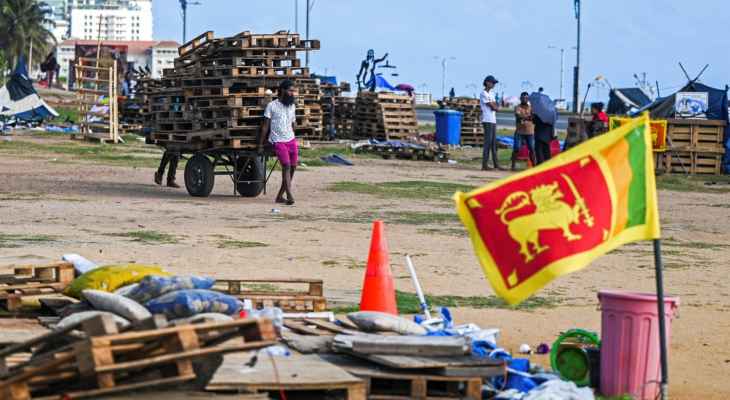Protesters who overthrew the previous government in Sri Lanka have announced they are dismantling a major protest site near the presidential residence in Colombo after arrests of leaders of the movement, while former President Gotabaya Rajapaksa prepares to leave Singapore due to the expiration of his visa, heading to Thailand.
The group, led by students and left-wing parties, also withdrew four appeals it filed against the police’s decision to leave the area, on the grounds that the tents were causing inconvenience to nearby hotels overlooking the sea, a spokesman for the movement explained.
Police have arrested dozens of people accused of vandalizing government property during months of popular protests that culminated on July 9 with the storming of the Rajapaksa Palace.
Protesters were seen on social media enjoying their time at the pool and jumping on ornate beds inside the presidential palace.
In return, the protesters handed over to the authorities about 17.5 million rupees ($46,000) of banknotes they found in one of the rooms of the presidential palace.
Rajapaksa hurriedly left his palace and fled to the neighboring Maldives, and on July 14 he took refuge in Singapore, where he announced his resignation.
A few days later, security forces evacuated the demonstrators who had occupied the presidential palace, the prime minister’s home and office.
Presidential successor Ranil Wickremesinghe declared a state of emergency and promised to end the unrest.
The Thai Foreign Ministry said on Wednesday that the former Sri Lankan president, who is due to leave Singapore, is expected to arrive in Thailand, which has received a request for his temporary accommodation.
Former President’s visa in Singapore, after being renewed by the local authorities, is valid for 14 days, until August 11.
“Thailand has received a request from the former President to enter Thailand from the current government of Sri Lanka. Consideration of this is based on the long and friendly relationship between the two countries,” said Thai Foreign Ministry spokesman Thani Sangrat.
The 73-year-old former president is poised to return to a country where protests against him have subsided, but his successor Ranil Wickremesinghe advised him not to return anytime soon, a relative told AFP.
Sri Lanka, with a population of 22 million, has been suffering from a catastrophic economic crisis for several months now, resulting in shortages of food, electricity, fuel and medicine.
In mid-April, Sri Lanka defaulted on its $51 billion foreign debt.
Source: El Nashra
